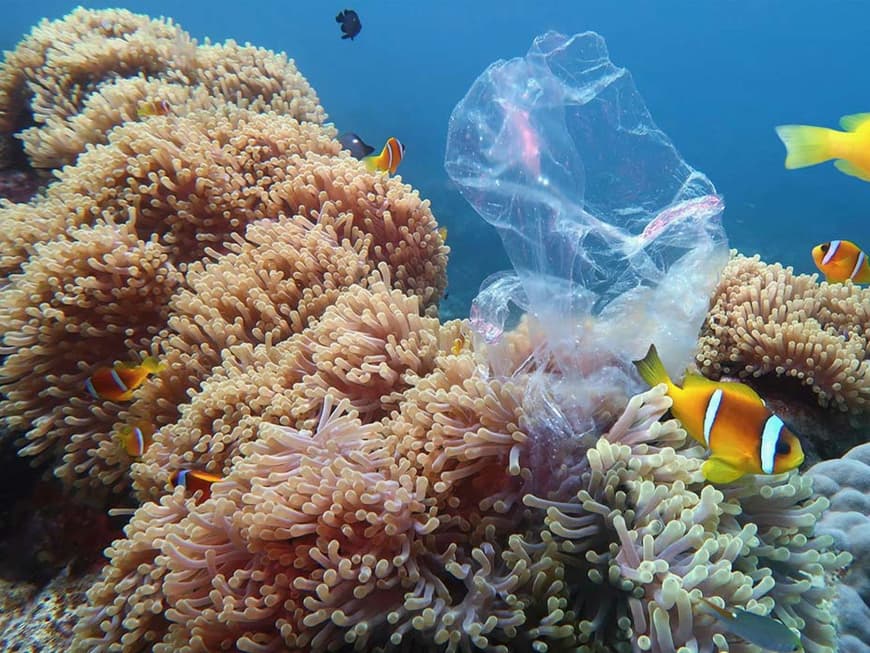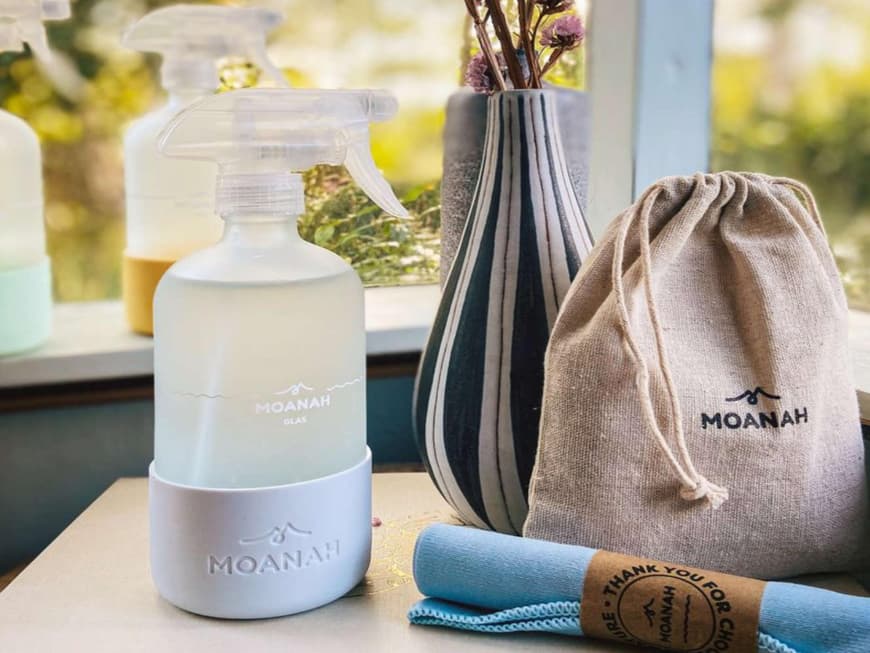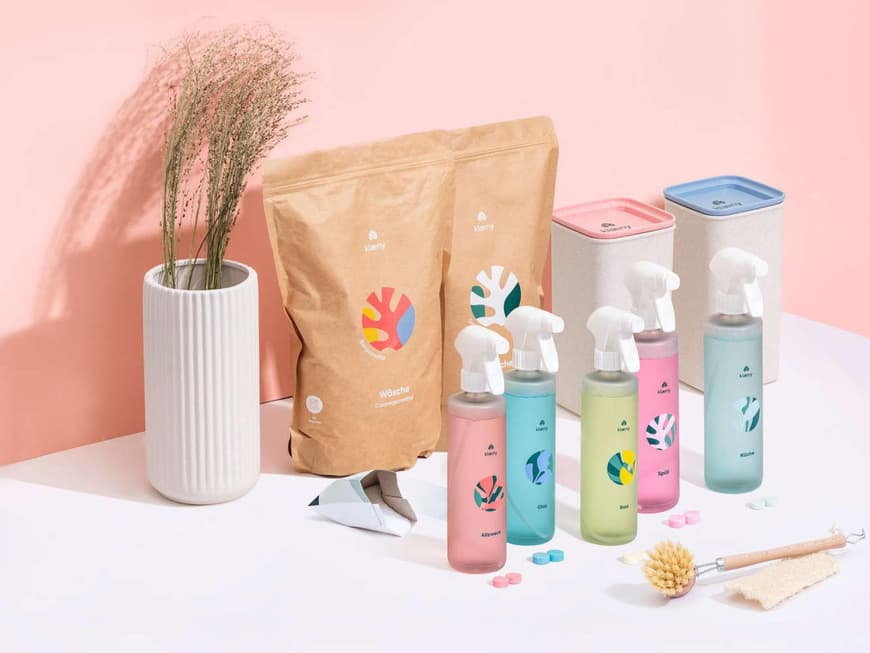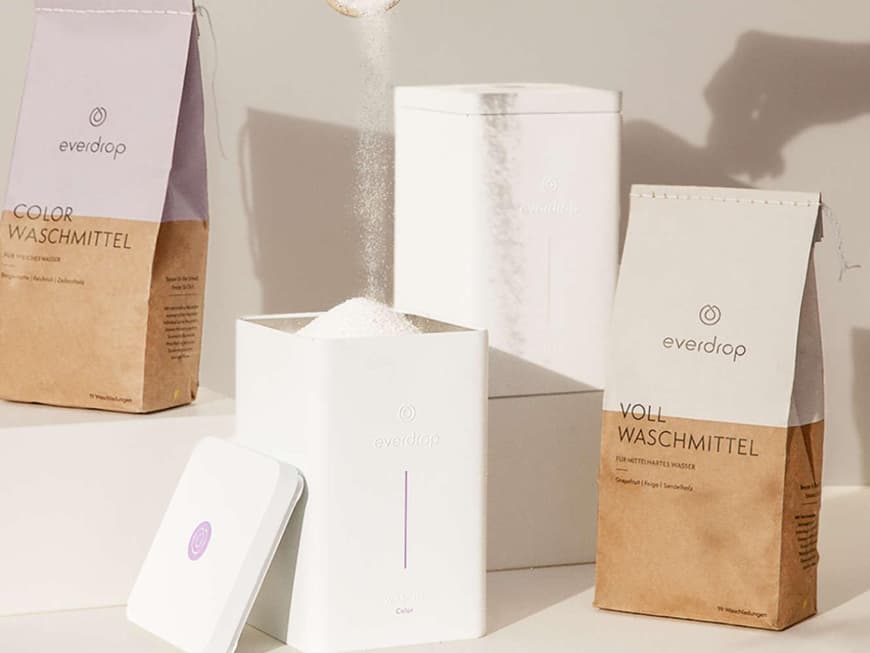Sustainability in everyday life: what does it mean?
Living sustainably in everyday life means consciously rethinking your actions and the associated effects. The aim is: To avoid negative consequences for people and the environment in order to preserve or improve the world. Always remember: you are not alone in the world - our children, grandchildren and animals also need an environment worth living in. So go through life mindfully. So if everyone takes just a few small steps, we can all save the world together. We guarantee: Sustainability in everyday life is much easier than you think. How to do it? Like this!
Plastic and waste - you can stop it!
Germans produce 45 million tons of waste every year - that's an almost unimaginable amount. A plastic bag doesn't do any harm? You bet it does! Just by not using plastic bags, we save 50,000 tons of plastic a year. Avoiding plastic is therefore necessary and important, because plastic carpets 4.5 times the size of Germany are floating in the sea. Coffee-to-go cups are also anything but hip and have become a real waste problem. Take your own cup with you to fill it up, because coffee shop chains are now reacting to the mountains of waste caused by the "trend" and offering discounts to those who bring their own cups.
Sustainable shopping is also very easy in everyday life: buy cold cuts and cheese at fresh food counters instead of plastic packaging, choose large yogurt sizes instead of lots of small cups. And avoid wasteful packaging, such as excessive gift boxes with sweets.
We need to be aware of this: Plastic floating around in the ocean isn't just killing lots of sea creatures. Plastic that is eaten by fish also ends up in our stomachs. Microplastics have recently been detected in the human gut. And we're not just talking about mountains of plastic in the Caribbean - waste is also piling up in European waters. Is that what we want?
Germans produce 45 million tons of waste every year!
Food: how much sustainability is possible in everyday life?
Quite a lot! Current figures show that every German produces 1.43 tons of CO2 per year through food alone. And: On average, we throw away 82 kilograms of food. You could practically throw your hard-earned money straight into the garbage can.
So what should we do? Don't buy more than you consume. Go to the supermarket with a shopping list, as this prevents unnecessary (bad) purchases and saves money. Freeze leftovers or make spreads from overripe fruit - be creative and don't just throw food away. For a better carbon footprint, avoid food with long transportation routes - strawberries don't have to come from Spain and beef doesn't have to come from Argentina. Buy regional and seasonal products. Kale in winter, asparagus in spring, raspberries in summer, lamb's lettuce in fall. There are delicious and varied fruits and vegetables that grow in Germany. This also strengthens local producers in the long term and is important for a healthy circular economy. And if you need strawberries in winter, simply freeze a large load in July or August. Various seasonal calendars reveal which fruit and vegetables are in season.
How to manage your household sustainably in everyday life
You can do a lot for nature and the environment by taking small steps, especially at home. For example, by saving electricity. A kettle with a lower wattage may take longer to work, but it uses less electricity. If you still have them, replace old light bulbs with LED or energy-saving lights. Are all your appliances on standby? This is not only bad for electricity consumption and the CO2 balance, but also for your wallet. Simply switch off your appliances! You should gradually replace outdated household appliances with new ones that consume less energy. Buy or use eco programs for washing machines and dishwashers. It has been proven that a full dishwasher on the Eco program is more efficient than washing up by hand.
Cleaning products
When it comes to cleaning products, it is best to buy environmentally friendly products. You can recognize these by the Blue Angel seal, for example. Or you can opt for organic products. Good old household remedies such as vinegar are effective and very inexpensive. You can make your own environmentally friendly all-purpose cleaners from baking soda, curd soap and lemon juice. So-called refill cleaning agents are currently in vogue - biodegradable cleaning agent tabs are placed in reusable spray bottles and filled with water. This saves a lot of packaging waste and reduces the number of cleaning products to the essentials, as we generally have far too many cleaning products in our homes. Innovative providers include Moanah, Everdrop and Klaeny.
You can find more sustainable tips at www.utopia.de.
Buying clothes sustainably and "fairly"
On average, we buy 60 items of clothing every year - and we throw away just as many. On the one hand, that's a lot of resources, and on the other, the items are often produced in countries where the workers are exploited. But how do you know whether the working conditions are correct or whether it is a case of greenwashing, i.e. pretending to be environmentally conscious? The guide through the label maze at www.ci-romero.de can help.
Using sustainable clothing in everyday life is very simple: pay attention to which raw materials are used and how they are produced. Companies that work in an environmentally friendly way carry a seal such as Naturland, GOTS or Organic Cotton. Also: it is better to buy less, but of higher quality. The saying "buying cheap is buying twice" is no coincidence. Clothes swapping exchanges or upcycling clothes are also popular.
As you can see, it is not that difficult to live sustainability in everyday life. Keep reviewing your habits and adapting them. Listen to your children too - they often know intuitively what is good and what is not.











